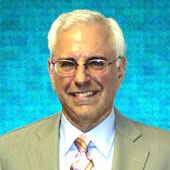Ending Gridlock in the U.S. Senate
How might the current gridlock in the U.S. Senate eventually be resolved?
March 26, 2010
In teaching a class on the United States' role in the origin of the EU, one of my graduate students inquired as to how the Marshall Plan ever got through the U.S. Senate. Obviously, the student’s frame of reference was today’s gridlocked institution.
I responded by telling the class about Senator Arthur Vandenberg of Michigan, a Republican, a former isolationist and an avid supporter of the Neutrality Act. But Vandenberg understood that the challenges facing post-World War II America demanded new thinking.
And so on January 10, 1945, he announced his shift from isolationism and instead called for collective security rather than relying on the military forces of any single country.
Vandenberg went on to break the gridlock of his time by delivering enough Republican Senate votes to enable the creation of the Marshall Plan and NATO. Vandenberg understood that leadership in a representative democracy oftentimes requires that you lead your constituents and not always bow to their most parochial interests. Knowing this, he changed history. So where is today's Vandenberg?
In many ways we are in a time similar to Truman's, when the United States needed to reinvent itself and rethink its role in the world. As in the aftermath of World War II, the United States today needs strong and determined leadership.
But just when the country needs such leadership to face the challenges of what are essentially four wars — Iraq, Afghanistan, the Great Recession and the refitting of the U.S. economy — the centrifugal force of globalization has upended the United States' traditional politics and made it more difficult to govern.
Globalization has reshuffled the deck of the U.S. political system, destroying the historical coalitions that were our political parties and empowering gridlock over checks and balances at a time when the future demands forceful leadership.
Big business, a mainstay of the Republican coalition since Lincoln's day, no longer necessarily sees its interest served by the party of limited government. Business needs government in order to compete in a global market, where it is becoming difficult to tell the difference between private and state-run corporations.
Big business also needs government to reduce its social cost in order to enhance its competitiveness abroad. At the same time, the gap between the pragmatic global interest of big business and the ideological wing of the Republican Party has widened substantially.
Blue-collar workers — the traditional backbone of the Democratic Party, and the group most hurt by globalization — are now enticed by the appeal of the GOP's conservative wing.
And the “Newocracy,” the United States’ new aristocracy who are the true beneficiaries of globalization — including the multinational manager, the technologist and the aspirational members of the meritocracy — have begun to find a home within the Democratic coalition despite historically having aligned themselves with the Republicans.
Yet it is the Republicans who have been forced to cower the most in the face of globalization's relentless march of change. Once a party that included such leading internationalists as Dwight Eisenhower, Richard Nixon and George H.W. Bush, the GOP is now where the disaffected and ideologues rule.
It is a party whose leaders are so afraid of losing power that playing to fear wins out over true leadership. This is increasingly necessary in order to win primaries where the voters do not represent a broad base of the state or district but rather the most extreme elements within the party. What better example than Senator McCain’s about-face on Don’t Ask, Don’t Tell when facing a challenge by the most conservative faction in the Arizona Republican Party?
Our political system is no longer made up of two broad coalition parties that can compromise and understand each other for the benefit of the country. Instead, we have two parties that now don't even speak the same language — a conservative party of ideology and the disaffected, free from the restraints of coalitions, and a party of a coalition so pragmatic that it is difficult to define.
What has made the United States the creator of the knowledge age is its ability to adapt to change — an ability derived from the United States' cultural respect for the freedoms to take risks, to innovate and to be entrepreneurial. However, innovation must bring about change — and change is threatening.
Without the American system of government that guarantees this freedom is open to all — and whose checks and balances ensure that any change will not be overly disruptive to society — the United States would not be the great engine of innovation. But for this to work, our political system cannot be held hostage by those who find reward in the status quo.
We are in a time when the people most threatened by change — the ideologue, the lobbyist stealthily fighting against investment or educational reform, the insurance and drug company interests and the people who have been left behind and are frightened — have been able to manipulate the U.S. system of checks and balances into a system of gridlock, a system that blocks change and growth.
It is clear we need another Senator Vandenberg.
Takeaways
Globalization has reshuffled the deck of the U.S. political system, destroying the historical coalitions that were our political parties.
Without the U.S. system of government that guarantees the freedoms to take risks, to innovate and to be entrepreneurial, the United States would not be the great engine of innovation.
We are in a time when the people most threatened by change have been able to manipulate the U.S. system of checks and balances into a system of gridlock.
Our political system is no longer made up of two broad coalition parties that can compromise and understand each other for the benefit of the country.
Read previous
Did the Capital Markets Fail Us?
March 25, 2010
